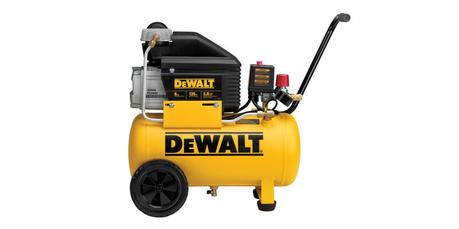
Compressors play a crucial role in air conditioning and refrigeration systems, as they are responsible for compressing and pressurizing refrigerant gas. There are two main types of compressors: single-stage and two-stage compressors. Both types of compressors have their own unique features and advantages, and choosing between them can be a difficult decision. In this article, we will outline the differences between single-stage and two-stage compressors, helping you make an informed choice.
Single-stage Air Compressors
Single-stage compressors are named as such because they have a single compression process. This process compresses the refrigerant gas from a low-pressure state to a high-pressure state. The compressed gas is then cooled and sent to the condenser to release its heat. This type of compressor is usually found in residential air conditioners and smaller commercial systems.
Single-stage compressors are a cost-effective solution for smaller systems. They are easy to install and maintain, and their simple design makes them a reliable choice for residential and small commercial applications. However, they are not as efficient as two-stage compressors, and they are not well-suited for larger commercial and industrial systems.
Dual-stage Air Compressors
Two-stage compressors, on the other hand, have two compression processes. The first stage compresses the refrigerant gas from a low-pressure state to an intermediate pressure state. The intermediate pressure gas is then sent to the second stage, where it is further compressed to a high-pressure state. This type of compressor is typically used in larger commercial and industrial systems, as well as some high-end residential systems.
Advantages of two-stage compressors
One of the main advantages of two-stage compressors is their efficiency. The two-stage compression process allows for more efficient refrigerant compression, reducing the amount of heat generated during the compression process. This results in a more efficient cooling system, which can lead to significant energy savings over time. Additionally, two-stage compressors are able to provide more consistent cooling, and they are better at maintaining desired temperature levels.
Another advantage of two-stage compressors is their durability. The two-stage compression process reduces the amount of stress placed on the compressor, which can lead to a longer lifespan. Additionally, two-stage compressors are often equipped with safety features, such as automatic shut-off switches, which can help protect the system from damage in the event of a problem.
Another advantage of two-stage compressors is their ability to adjust to changing cooling demands. They can adjust the amount of refrigerant they compress to meet the cooling demands of the system, which can result in improved comfort and energy efficiency. Additionally, two-stage compressors are better equipped to handle extreme temperature swings, as they can adjust their compression process to meet changing conditions.
Disadvantages of two-stage compressors
However, there are also some disadvantages to using two-stage compressors. One of the main disadvantages is their cost. Two-stage compressors are generally more expensive than single-stage compressors, which can make them an expensive option for small-scale applications. Additionally, two-stage compressors can be more complex and require more maintenance compared to single-stage compressors. This can make them a less attractive option for those who are looking for a low-maintenance solution.
Another disadvantage of two-stage compressors is that they can be louder than single-stage compressors. This is due to the additional stage of compression, which generates more noise. However, this noise is usually not noticeable in large commercial and industrial systems, and it can be mitigated through proper installation and insulation.
Conclusion
Choosing between single-stage and two-stage compressors ultimately comes down to your specific needs and budget. Single-stage compressors are a cost-effective solution for small-scale residential and commercial applications, while two-stage compressors are better suited for larger commercial and industrial systems. Two-stage compressors are more efficient, durable, and better equipped to handle changing cooling demands, but they also come with a higher price tag and may require more maintenance.
It is important to carefully consider your cooling needs, budget, and long-term energy savings when choosing between single-stage and two-stage compressors. Consulting with a professional HVAC contractor can also help you make an informed decision and ensure that you choose the right compressor for your system.
In conclusion, single-stage and two-stage compressors both have their own advantages and disadvantages, and choosing the right one for your system requires careful consideration of your specific needs and budget. Whether you choose a single-stage or a two-stage compressor, it is important to ensure that it is properly installed and maintained to ensure that it operates efficiently and effectively for many years to come.
